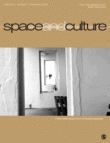A Rhetorical Response to Hurricane Katrina
|
In this piece I look at Hurricane Katrina through the lens of rhetoric. I explore how, in press coverage, interviews and resident testimonials, symbols can be used to state and to counter-state, to create suspense and surprise, to reveal more than one or even two sides to any story. Key questions asked include: How do catastrophic and ineffable events, whether considered acts of God or acts of man, become controversies contested on the symbolic level? How can rhetoric be mobilized to persuade disparate communities/audiences to act according to a shared vision of the common good? And, how is humanity argued for in a contentious climate? I argue that rhetorical theory allows us to go about an exploration of the dialectical tensions that arise among conflicting communities as they argue from their own linguistic and symbolic systems. It can reveal the very real costs of resisting or identifying with competing notions of universality and community as they are used to argue for humanity. I share my hope that we can learn to reconsider the effects of submerged particularities within unifying terms which have been historically deployed in national and international rhetorics of reconstruction.
|
 |
- Add new comment
- 4015 reads

